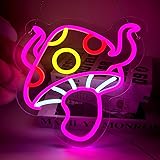All Categories
*Price and Stocks may change without prior notice
*Packaging of actual item may differ from photo shown
- Electrical items MAY be 110 volts.
- 7 Day Return Policy
- All products are genuine and original








About Stay, Illusion!: The Hamlet Doctrine
Product Description The figure of Hamlet haunts our culture like the Ghost haunts him. Arguably, no literary work, not even the Bible, is more familiar to us than Shakespeare’s Hamlet. Everyone knows at least six words from the play; often people know many more. Yet the play—Shakespeare’s longest—is more than “passing strange” and becomes deeply unfamiliar when considered closely. Reading Hamlet alongside other writers, philosophers, and psychoanalysts—Carl Schmitt, Walter Benjamin, Freud, Lacan, Nietzsche, Melville, and Joyce—Simon Critchley and Jamieson Webster consider the political context and stakes of Shakespeare’s play, its relation to religion, the movement of desire, and the incapacity to love. Review “A treat. . . . Invigorating. . . . Each of the short chapters in Stay, Illusion! is a springy diving board poised over a deep pool of thought.” —Laura Miller, Salon “[A] thoughtful, elegant work of criticism.” —NPR “Provocative. . . . An astute account of the reactions of various philosophers and psychoanalysts to the play—and their often profound and sometimes wacky analyses.” —The Wall Street Journal “A brilliant set of readings of a work that, like an insistent ghost, seems to have more to tell us with each passing era.” —Tom McCarthy, author of Remainder “Thoughtful, fascinating, and difficult. . . . Webster and Critchley illuminate Hamlet. They highlight its ghostliness and expand our sense of its eroticism.” — The New Yorker “Impressive. . . . Critchley and Webster offer some intriguing and original thoughts on what Hamlet has to say about shame and love, taking up a new tone that suddenly makes the play feel intimately connected to both the authors themselves and the state of the world today. . . . It’s refreshing to read such unorthodox and enthusiastic explorations of canonical literature.” — Bookslut “An engaging, eloquent, and insistently pleasurable text that makes the best case possible for ‘rash’ reading. . . . This collaborative writing gives us a dynamic set of forays, recruiting us into the start and stop of thought, making Hamlet crucial for the thinking of our own impasses and delights. In the mix is a singular and illuminating encounter between philosophy and psychoanalysis.” —Judith Butler “Critchley and Webster’s fierce, witty exploration of Hamlet makes most other writing about Shakespeare seem simple-minded.” —Hari Kunzru, author of Gods Without Men “The gap between thought and action has rarely been contemplated with so much intellectual excitement and energy as it is in this book. Indeed, this study of Hamlet is a kind of thrill ride, a breathless investigation of some of the most important ideas from philosophy and psychoanalysis from the Modern era. But the great pleasure it holds in store for most readers has to do with its profound understanding of reflection, and its discontents.” —Charles Baxter, author of The Feast of Love “I absolutely love the book, which I think is brilliant both as a set of readings of the play and as a meditation on contemporary, post-illusion existence. . . . A thrilling performance.” —David Shields, author of Reality Hunger “Remarkably thought-provoking, all the more so for being rendered in lively, non-academic prose. . . . [Critchley and Webster] explore new angles.” — Maclean’s (Toronto) “A hugely enjoyable, aphoristic, punky, intellectually dazzling bomb of a book: a serious provocation to both the biscuit-box Shakespeare industry and, more widely, to contemporary literary culture. . . . [ Stay, Illusion!] is a book to be devoured, argued with, spat out.” — The Independent (UK) “Critchley and Webster write about Hamlet in short, vitriolic chapters, proposing a series of darkly intelligent questions and asserting Ophelia’s place as the real hero of the play. It is an ode to the spirit of ‘rashness.’” — New Statesman “[An] insightful interpretation. . . . The authors’ passion for the play and its questions are clearly evident.” — Publishers Weekly “[Critchley an




 (1)
(1)





















